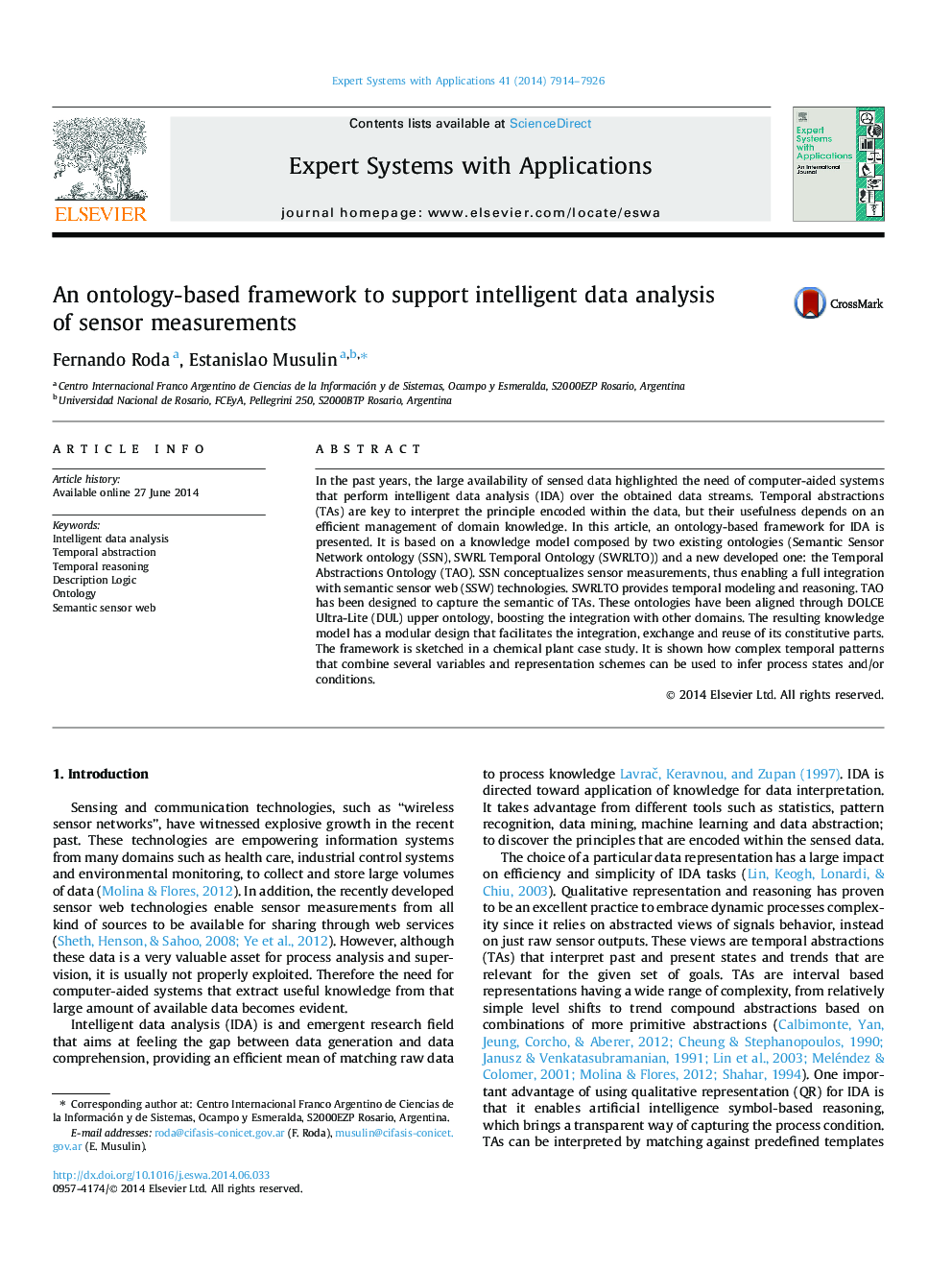| Article ID | Journal | Published Year | Pages | File Type |
|---|---|---|---|---|
| 382286 | Expert Systems with Applications | 2014 | 13 Pages |
•An ontology-based framework to support intelligence data analysis of sensed data is presented.•Framework relies in a novel knowledge model composed by four ontologies: SSN, TAO, SWRLTO and DUL.•Management of different qualitative representation schemes are supported.•Temporal reasoning capability is also provided to support temporal inferences and pattern matching.•Data analysis can be traced from the high-level temporal abstractions to the correspondent raw sensed data.
In the past years, the large availability of sensed data highlighted the need of computer-aided systems that perform intelligent data analysis (IDA) over the obtained data streams. Temporal abstractions (TAs) are key to interpret the principle encoded within the data, but their usefulness depends on an efficient management of domain knowledge. In this article, an ontology-based framework for IDA is presented. It is based on a knowledge model composed by two existing ontologies (Semantic Sensor Network ontology (SSN), SWRL Temporal Ontology (SWRLTO)) and a new developed one: the Temporal Abstractions Ontology (TAO). SSN conceptualizes sensor measurements, thus enabling a full integration with semantic sensor web (SSW) technologies. SWRLTO provides temporal modeling and reasoning. TAO has been designed to capture the semantic of TAs. These ontologies have been aligned through DOLCE Ultra-Lite (DUL) upper ontology, boosting the integration with other domains. The resulting knowledge model has a modular design that facilitates the integration, exchange and reuse of its constitutive parts. The framework is sketched in a chemical plant case study. It is shown how complex temporal patterns that combine several variables and representation schemes can be used to infer process states and/or conditions.
